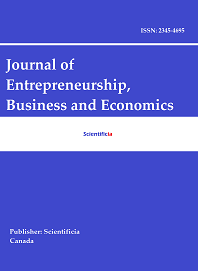Antecedents of Employee Work Engagement in Malaysia in Light of Job Demands-Resources Theory
Abstract
The employee engagement rate was 80% in 2022, which has decreased to 67% in 2023 and the cost of disengaged employees was approximately RM 26.097 billion in 2020 in Malaysia. It indicates the unequal presence level of demands and resources among employees according to JD-R theory. The main objective of this study is to investigate the effect of demands and resources on work engagement among non-government full-time employees in Malaysia. Hypotheses were developed based on JD-R theory, with the attachment of workaholism as a personal demand to fill the gap of previous studies. A total of 400 data was collected online using a self-administered questionnaire cross-sectionally from the full-time employees who worked in non-government organizations in Klang Valley, Malaysia. PLS-SEM was used to analyse the collected data and test the hypotheses. The finding reveals that job demands (role ambiguity, role conflict, role overload, and mental health challenges) and personal demands (workaholism) have significant negative effects on work engagement. Job resources (autonomy, performance feedback, support of supervisor, social support, learning and development opportunity) and personal resources (self-efficacy, hope, optimism, resilience, employee religiosity) significantly and positively influence work engagement. Job resources decrease the effect of demands (job and personal) on work engagement by playing a moderating role. Similarly, personal resources decrease the impact of demands (job and personal) on work engagement by its moderating effect among full-time non-government employees in Malaysia. The interaction effect between resources (job and personal) and demands (job and personal) on employee work engagement in this study will assist managers and human resources practitioners in making insightful decisions for increasing employee work engagement, which will decrease the disengagement cost of the employees.
Research Paper
Keywords: JD-R theory, job demands, job resources, personal demands, personal resources, work engagement
Reference to this paper should be made as follows: Hossan, D., Mansor Z.D., Jaharuddin N.S., & Rahman M.M. (2024). Antecedents of Employee Work Engagement in Malaysia in Light of Job Demands-Resources Theory. Journal of Entrepreneurship, Business and Economics, 12(1), 36–65.

This work is licensed under a Creative Commons Attribution-NonCommercial 4.0 International License.






